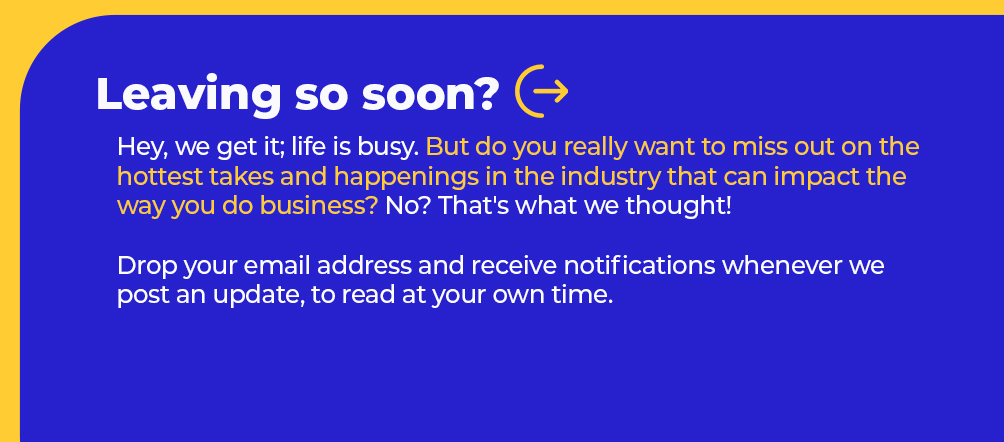The Great Resignation: How can small and medium-sized businesses address this challenge
The Great Resignation
At the onset of Quarter 2 of 2021, the number of employees who quit their jobs in a single month broke an all-time US record. Economists defined this as The Great Resignation—where a large number of people are quitting their jobs due to the ongoing global health crisis and even post-pandemic.
According to the US Bureau of Labor Statistics, around 47.8 million workers in the US had quit their jobs in 2021—the highest number of resignations on record. As the trend continues to set records in the first quarter of 2022, with over 4.5 million Americans quitting in March, companies are finding it more difficult to look for talents to expand or replace their onshore team and ultimately address this challenge.
Why do people quit
The narratives around The Great Resignation may have clearly described the transformation we’re seeing including how people are starting to re-evaluate their perspective when it comes to work and the broader impacts of this tidal wave of job quitting.
In The Deloitte Global 2022 Gen Z and Millennial Survey, it highlighted some of the key reasons why many younger employees opt to quit their current roles and try to find opportunities elsewhere that offer:
- Good work-life balance
- Learning and development opportunities
- Higher salary or financial benefits
- Better pay and more opportunities for career advancement
- Opportunities that allow more flexibility (e.g., can work remotely or adopt hybrid setup)
A research study from Harvard Business School has also found a tremendous difference in turnover rates among companies in different industries. The study shows that while resignations reduced slightly in manufacturing and finance, 3.6% more employees in the healthcare sector quit their jobs compared to the previous year. Likewise, resignation rates in tech increased by 4.5%.
These findings reaffirmed that resignation rates among employees who had experienced increased workload and burnout due to the pandemic were higher and such industries like tech and healthcare are at the highest turnover risk.
Labor market seeing sustained pressure
As of March 2022, there are about 11.5 million job openings, 6.7 million hires, and 6.3 million separations based on the Department of Labor’s latest Job Openings and Labor Turnover Survey. The total number of people who quit voluntarily edged up to a series high of 4.5 million.
According to Rucha Vankudre, a senior economist at Emsi Burning Glass, a labor market analytics firm, the problem right now is there aren’t enough bodies to fill jobs.
Now, the question is—how can employers address the challenge of this tidal wave of resignations and how can they keep up with these recruitment struggles?
Remote jobs are becoming more competitive
As companies struggle to fill open roles in the United States, a growing number of employers are turning to automation and international candidates to assist in meeting their hiring needs.
Similarly, several businesses are leaning toward getting more international candidates for remote roles and creating even more competition for remote jobs.
“In the United States, employees tend to be paid higher wages than people in many other countries,” Klotz said. “If you’re a remote organization, you can recruit workers from all over the world who can do the same job for a cheaper rate,” he added.
The growing trend of hiring an offshore team
Companies from various industries have turned to outsourcing to keep their businesses afloat. In a recent PWC Pulse Survey, 27% of firms rely more on outsourcing than they have done in the past.
Building an offshore team helps businesses address the challenges they’re facing with hiring and recruitment amidst The Great Resignation era.
Today, more and more businesses are recognizing the benefits of hiring an offshore team:
- Access to a steady stream of a skilled, high-quality talent pool
- Access to a remote-enabled, and remote-optimized workforce
- Ability to reduce and save on staffing costs
- Access to a highly scalable and flexible workforce
Companies are seeing it as the new norm that enables them to find the right people quickly and efficiently and leverage their global offshore workforce.
During the peak of the resignation wave in 2021, Tahche has helped over 40 small and medium-sized businesses across different industries in the US. Through its offshore recruitment services, Tahche has helped clients address this challenge by finding capable and highly skilled talents to fill roles in various capacities including IT, tech, digital marketing, and accounting.
About Tahche
With over a decade of experience working with the largest companies in the Philippines and the fastest-growing clients from the US, Australia, New Zealand, and other global firms, Tahche helps small and medium-sized companies build their offshore teams and provide a winning formula for growing their business.






